In most Azerbaijani villages, riverbeds are used as dumping grounds for garbage
Waste problem in Azerbaijan
Last month, floodwaters in the Goychay region of Azerbaijan brought trash into the village of Garabaggal. This event was dubbed a “garbage flood” because waste accumulated over years in the mountain villages was mixed with the river’s waters.
The issue of waste collection and recycling in Azerbaijan is not new and is frequently discussed in the media and society.
In various regions and villages of the country, the problem is even more acute than in Baku. In most regions, there are no trash bins on the streets, or they are placed very rarely, and there are no facilities for processing household waste. In the villages, waste is mainly collected in open areas near the riverbed or in the forest and is burned.
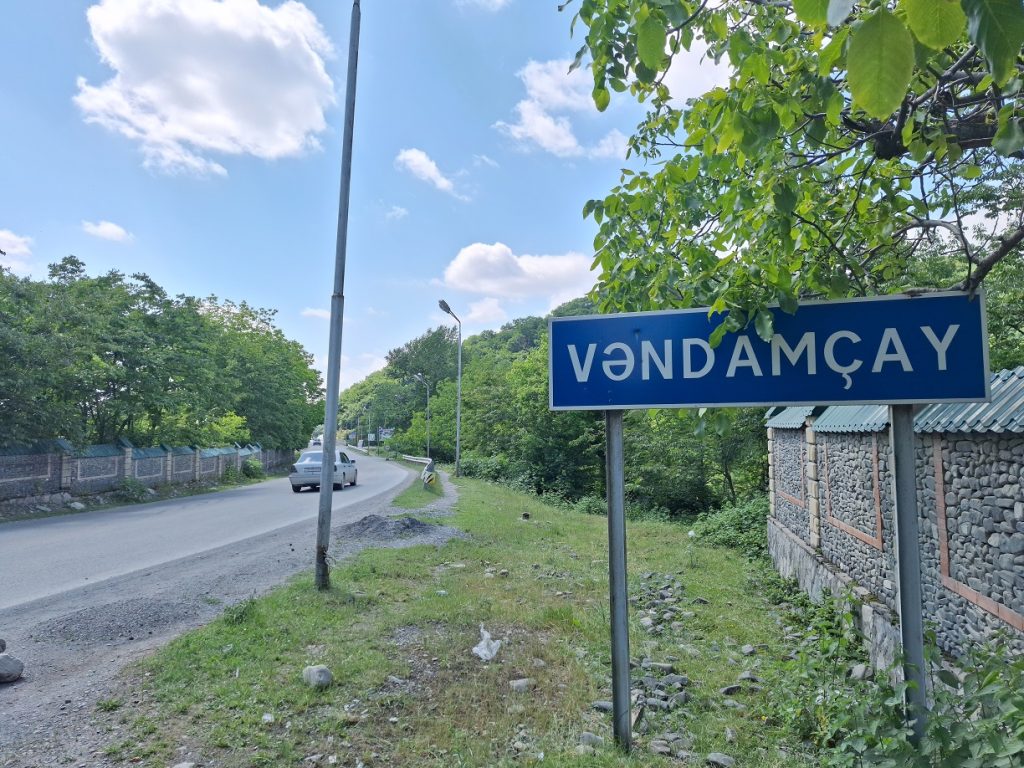
The village of Vendam in the Gabala district is one such place. Household waste has been dumped for many years into the Vendamchay River (locals also call it Garachay, which translates to “black river”), which flows through the village.
“Do not throw trash into the riverbed!”

This warning is posted on a board nailed to a tree where the road turns toward the riverbed. However, just 50 meters away, the smell of garbage hits you.

Although the water of the Vendamchay River (which is 36 kilometers long) is primarily used for irrigation, villagers also use it for household purposes. However, it remains unclear how safe and suitable it is for use.
Villagers report that they have repeatedly contacted local executive authorities with written requests for garbage removal. Despite this, the waste continues to accumulate.
“I personally have never seen anyone from the municipality or any local leaders around here. When we complain, they tell us they can’t come. One of the river’s tributaries runs right by our houses, and it’s piled with trash. What else needs to happen for them to find a way to come here? In some places, they clean up for money, but they don’t do it here because they say the area is too remote. We have to hire a truck and clean up the trash ourselves,” says village resident Mirvari Hasanova.
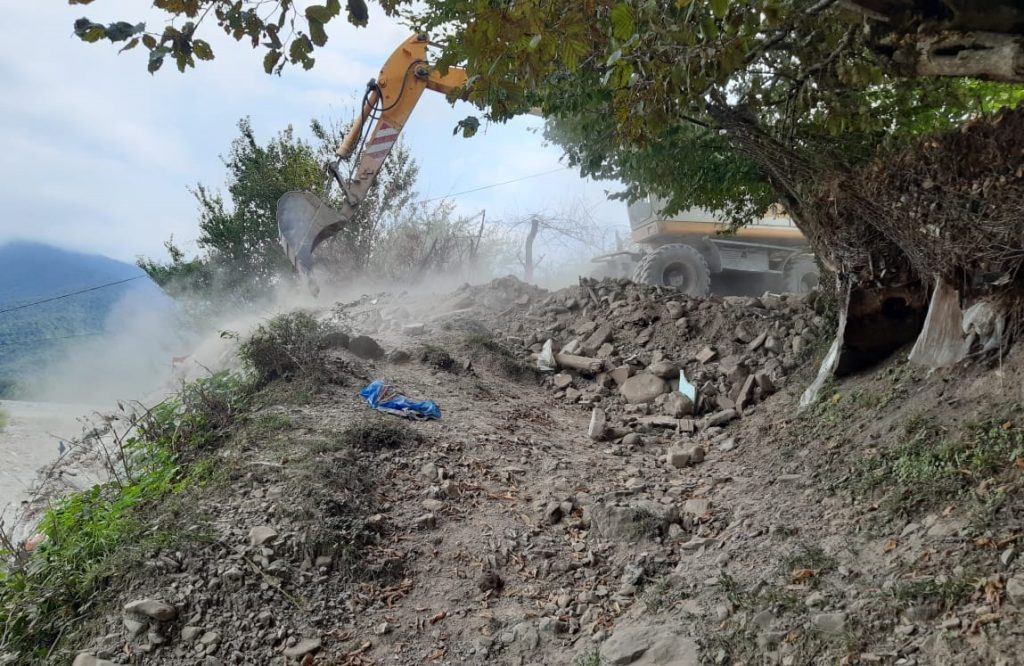
According to Hasanova, who has lived in Vendam for nearly 30 years, no project to address the waste problem in the village has ever been implemented. While she is against dumping waste into the river, she doesn’t believe it’s fair to solely blame the villagers.
“This is a rural area; some people can afford to pay the monthly garbage collection fee, while others cannot. And when there isn’t enough money collected, we can’t hire a truck. Now, let’s blame these people for throwing their trash anywhere? But what should we do?” complains Hasanova.
Municipality head: “We don’t receive a budget for garbage collection”
According to a decision by the Cabinet of Ministers of Azerbaijan, adopted in 2005 to implement the Law “On Waste,” the responsibility for household waste collection lies with the municipal services departments of local executive authorities. However, in practice, this work falls on local municipalities in rural areas far from the center.
Municipalities attempt to address the issue by collecting and burning waste or burying it in large pits.
“The municipality doesn’t have large funds. We aren’t allocated an additional budget for garbage collection. We cover transportation costs from the money we receive from residents based on contracts with them. Each family can use the service by paying 5 manats [about $3] per month. We created a landfill on the municipality’s territory, where we dump and burn the waste, among other things. I’m not saying we’re working at a European level, but we’re doing everything we can,” says the head of the Vendam village municipality, Asif Gashimov.
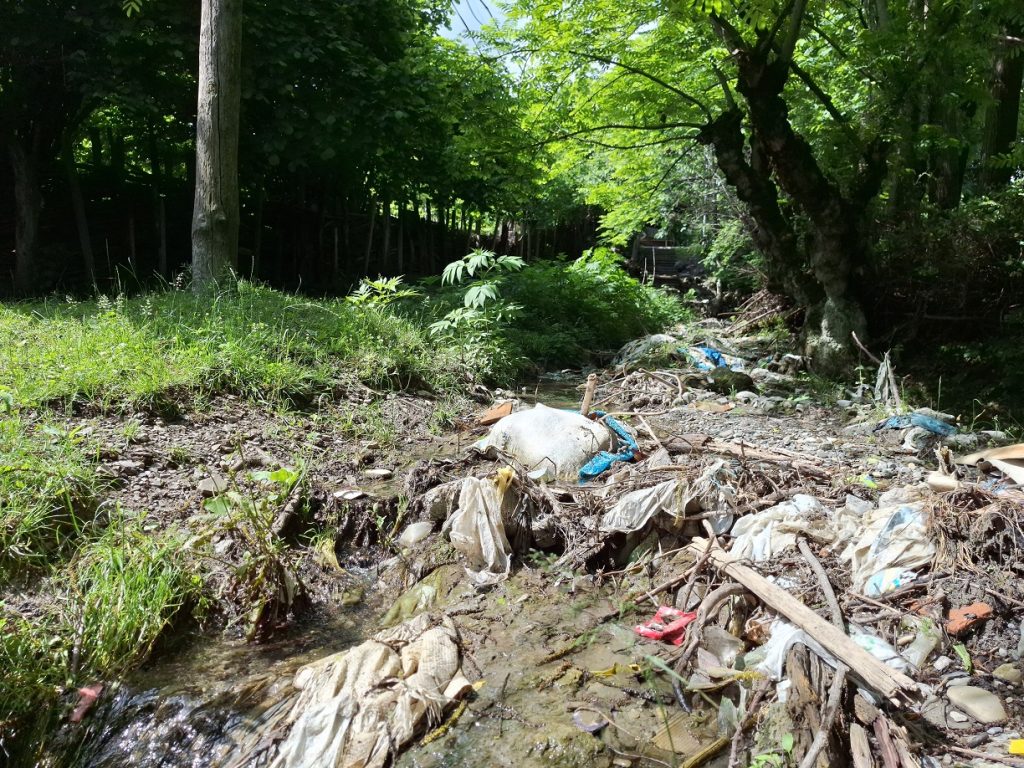

Residents are unhappy that they have to pay for garbage collection due to the lack of municipal budget allocations.
“Why should we have to pay extra for garbage collection? And what good does it do if they just burn it? Villagers can do that themselves. What about the ash from the burned waste, the toxins released into the air? These problems need to be solved, not expect money from us,” says a Vendam resident who wished to remain anonymous.
“This situation exists in all regions”
What is happening around the Vendam River is just a small part of the overall problem, says environmentalist Sadig Hasanov:
“According to statistics, our country produces 3.5 million tons of household waste annually, which means about 400 kilograms of garbage per person. There are countries where this figure is higher than ours. For example, in the United States, the amount of waste per capita is over 700 kilograms. But in developed countries like America, Canada, China, etc., household waste is used as raw material for recycling. This forms the basis of their economies. Overall, recyclable waste accounts for 60 percent.
In Azerbaijan, the only facility designed for recycling and utilizing household waste is located in Balakhani (on the outskirts of Baku). Here, waste is sorted and incinerated. Some useful waste is sent for recycling, but this accounts for only 20 percent of the total amount of household waste,” says environmentalist Sadig Hasanov.
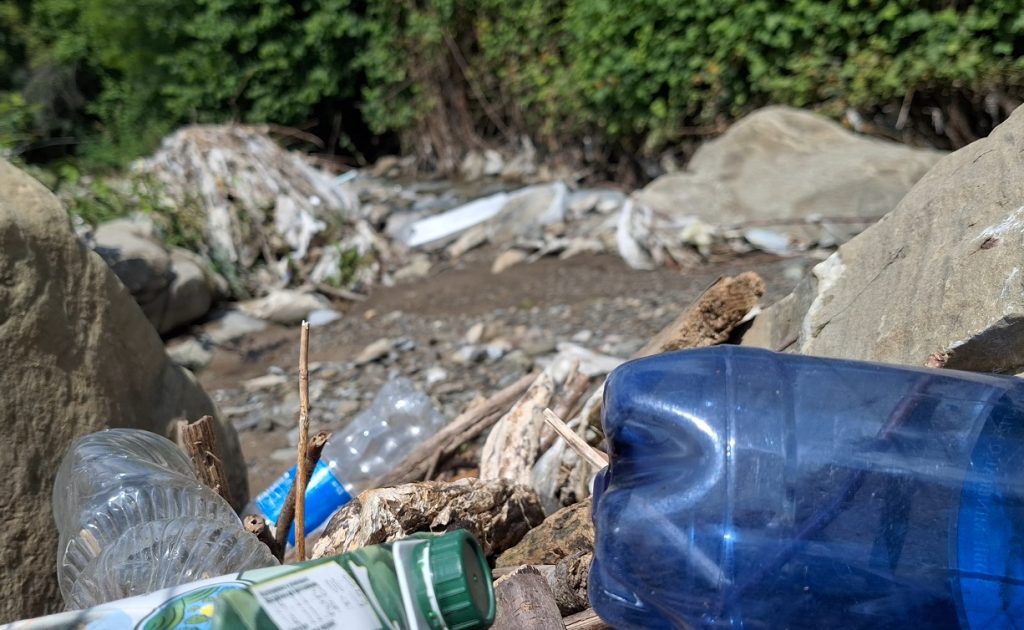
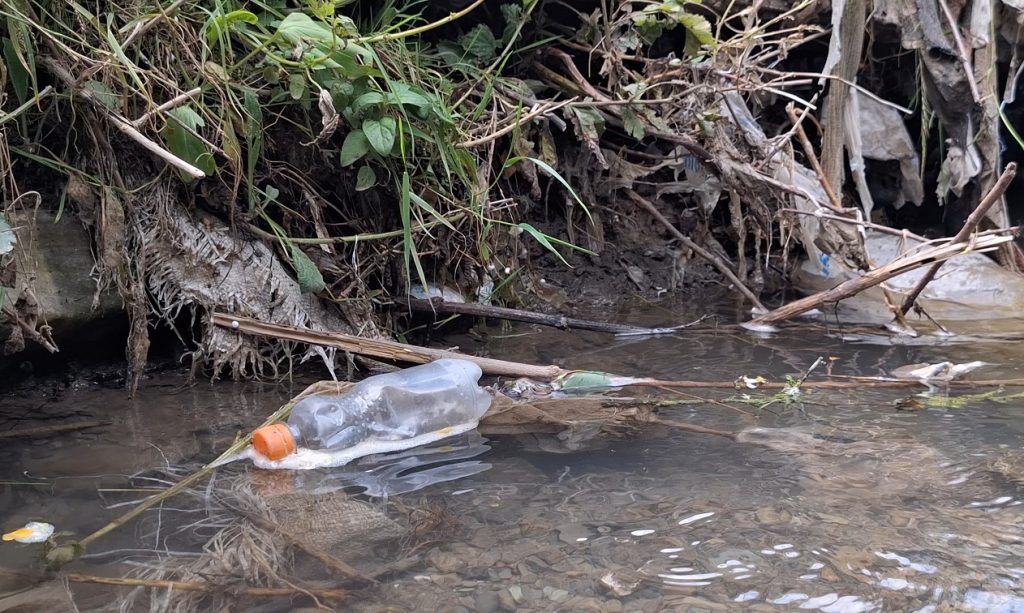
He adds that burning or burying household waste is harmful both to the environment and to the people living there.
“When waste is burned, toxic substances such as sulfur, methane, carbon dioxide, etc., are released into the air. These not only have a negative impact on living organisms but are also considered contributors to global warming.
Or consider burying waste in the ground. Sometimes it takes 500 years for plastic waste to decompose in the soil. Moreover, recyclable waste like metal and glass is buried along with harmful waste that directly poisons nature. It’s unfortunate that there are no significant changes in the government’s household waste policy,” says the environmentalist.


















